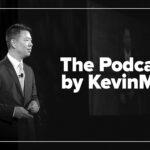In medicine, we are taught to care deeply.
When criticism arrives, whether from a patient, a colleague, an administrator, or an anonymous review, it stings. A lot. The sting usually lasts long after we read the words. It usually leads to rumination, self-doubt, and often even poor sleep, a questioning of our career choice, and our abilities.
Even with years of mindfulness, self-compassion, and coaching, I still feel upset when it happens to me. Not because I did something wrong. But because I care. Because I’m human.
Negative feedback unsettles even the most seasoned among us. Not because we’re not tough enough but because we are deeply connected to the work we do.
How do we move through it with less internal cost?
The first step is to pause and breathe. Feel the discomfort and anger and notice our racing mind. And then, bring a hand to heart. The simple act of a hand on your heart signals safety to our nervous system. It lessens cortisol, releases oxytocin, and reminds our body physiologically that we are not in danger.
From this space, we can acknowledge what’s true. Of course it hurts. Of course we want to defend ourselves. Of course we wish it was different.
Self-compassion isn’t about avoiding accountability; it’s about creating the conditions where we can reflect with clarity rather than shame.
Almost all physicians are thoughtful, well-trained, and intentional. We show up with care. We work hard. And we do good work.
The next step is to tell a more generous story. Not a sugar-coated one. A kind one.
When our mind starts spinning (What if this ruins my reputation? What if I made a terrible mistake? What if everyone believes them?) we release cortisol and norepinephrine and are unable to see clearly.
We can begin again by pausing and breathing again. We can name what’s happening, without judgment. “Name it to tame it.” is a mindfulness approach.
Then we can choose to ask more helpful questions:
- What else might be true?
- What if this feedback says more about the other person’s pain than your performance?
- What if the complaint highlights a strength: “She doesn’t prescribe unnecessarily”?
- What if it was simply a mismatch of expectations or a moment of human vulnerability, met with equally human imperfection?
When we offer ourselves a generous story, we reclaim our energy. We were taught that rumination is part of future excellence. It’s not. It’s depleting.
We can allow feedback to inform us, but not define us. We are responsible for how we show up, with presence, integrity, and kindness. We are not responsible for how others interpret it.
When we focus on what’s within our control, we are not only able to learn and evolve but we focus on what matters most.
Being liked is not the goal. Pleasing patients doesn’t always lead to better outcomes. In fact, studies show that higher satisfaction scores sometimes correlate with worse health outcomes: More hospitalizations, even higher mortality.
Saying no to a request you know isn’t safe, setting boundaries, or honoring your clinical judgment may not feel good to the patient in the moment, but it is the very essence of good care.
When a patient leaves your care because you stayed in alignment with your values, that is not failure. It is integrity.
Letting go of feedback doesn’t mean you stop caring. It means the opposite.
The work we do as physicians isn’t about being liked; it’s about showing up with clarity, compassion, and courage. This begins with liking and approving of ourselves. Even when we’re misunderstood.
We can choose to let negative feedback go, not because it doesn’t matter, but because we matter. And we want to be able to continue to care.
May you offer yourself a generous story next time the sting arrives. May you trust the kind of doctor, and human, you are.
Jessie Mahoney is a board-certified pediatrician, certified coach, mindfulness and yoga teacher, and the founder of Pause & Presence Coaching & Retreats. After nearly two decades as a physician leader at the Permanente Medical Group/Kaiser, she stepped outside the traditional medical model to reimagine what sustainable well-being in health care could look like. She can also be reached on Facebook and Instagram.
Dr. Mahoney’s work challenges the culture of overwork and self-sacrifice in medicine. She helps physicians and leaders cultivate clarity, intention, and balance—leveraging mindfulness, coaching, yoga, and lifestyle medicine to create deep and lasting change. Her CME retreats offer a transformative space for healing, self-discovery, and renewal.
As co-host of the podcast, Healing Medicine, she brings self-compassion and presence into the conversation around modern medical practice. A sought-after speaker and consultant, she partners with organizations to build more human-centered, sustainable, and inspired medical cultures.
Dr. Mahoney is a graduate of Dartmouth College and the University of California, San Francisco, School of Medicine.




















![AI censorship threatens the lifeline of caregiver support [PODCAST]](https://kevinmd.com/wp-content/uploads/Design-2-190x100.jpg)
